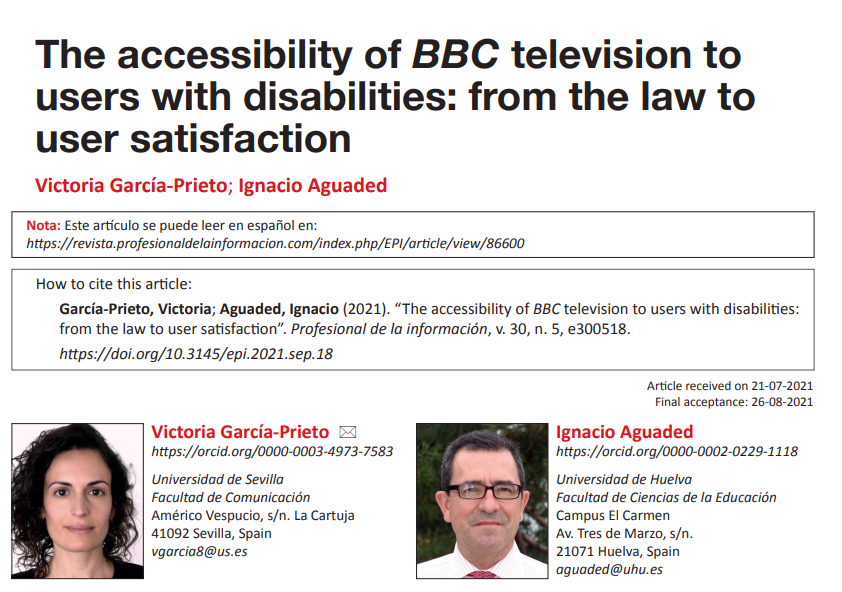
The accessibility of BBC television to users with disabilities: from the law to user satisfaction
On Sale
€15.00
€15.00
Abstract: Universal accessibility to public television guarantees the fundamental right to receive media information and promotes social inclusion. British audiovisual regulations impose minimum quotas for subtitling, audio description, and sign language to make content more accessible to people with visual or hearing impairment. However, these minimum requirements do not ensure full user satisfaction. The aim of this study is to present a descriptive analysis of user satisfaction with the accessibility of BBC public television services, both linear and on demand, and collect the improvements demanded by users. The survey method was applied, interviewing 442 UK residents who were users of subtitles, audio description, and sign language, mostly people with disabilities or members of their families. The questionnaire also included qualitative questions to capture basic demands identified by the users. One of the main results is the need to improve the quality and synchrony of live subtitling, and to increase the fractions of programming with audio description and sign language. Moreover, beyond compliance with the law, it is essential to listen to the opinions of users with visual or hearing impairment to ensure that services fulfill their mission of guaranteeing audiovisual accessibility and promoting social inclusion.
